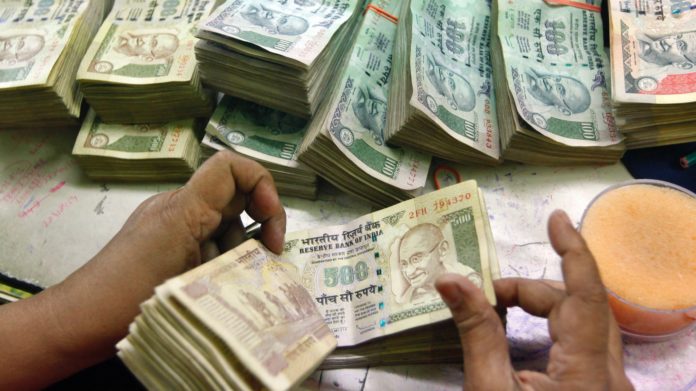On 8th November 2016, Government of India led by Mr. Narendra Modi ordered the demonetization of Rs.500 and Rs.1000 banknotes as legal tender. It was a move by the government eyeing to crackdown on the black money in the country and to stop counterfeiting of the said denomination banknotes, which was being used supposedly to fund terrorism. The move was also an effort to make India a cashless society, encouraging the citizens to make extensive use of bank checks, Debit and Credit cards and e-wallets.
This decision of the government led to serpentine queues outside ATMs and bank branches, with people gathering to either to withdraw their money in legal tender or to exchange the demonetized notes. The government laid down specific and stringent rules for withdrawal of cash, deposit and exchange of old banknotes for both Resident Indians and Non-Resident Indians (NRIs).
For NRIs, there was no provision to deposit or exchange the Rs.500 and Rs.1000 banknotes anywhere abroad. The NRIs had to come to India to exchange the currency or authorize a known person, in writing, to deposit the cash in their Non-Resident Ordinary Account (NRO Account) provided they are able to send the physical cash to India or if the case is in India. The authorized person had to mandatorily carry a valid identity card issued by the Government like Aadhar card, Driving License, PAN card etc. and the authorization letter.
On the day the banknotes were demonetized, the last day specified for deposit or exchange of old banknotes was 30 Dec 2016. However, the resulting cash crunch compelled the Reserve Bank of India (RBI) to extend the deadline for NRIs and for Resident Indians who were abroad during that period. With the revised deadline, NRIs who were abroad during the period from 9th November to 30th December can exchange the old notes till 30th June 2017. This facility can be utilized only once by submitting identity documents and passport copy to the bank as a proof of having not been in the country during the early deadline and not exchanged earlier. This facility is available only in RBI branches in Mumbai, New Delhi, Kolkata, Chennai, and Nagpur. On satisfying all the terms and conditions, the admissible amount will be credited to a bank account which is KYC (Know Your Customer) compliant.
Though there is no upper limit for a cash deposit for Residents, an NRI has a limit capped at 25,000 INR for deposit or exchange. This is in accordance with the Foreign Exchange Management Act (FEMA) regulations which caps the maximum amount of cash that can be carried abroad to 25,000 INR. Any deposits or exchange above this limit has to be justified with relevant transactions and records. Also, if an NRI makes a deposit higher than 250,000 INR, an inquiry is initiated irrespective of the country in which the person pays tax and files tax return. According to Indian Income Tax Act, an amount of 250,000 INR is allowed per annum as tax-free income and any Indian income above this is taxed at applicable tax rates. Hence an NRI has to justify the deposit or exchange of Indian banknotes above 250,000 INE with relevant sources of income or with the relevant information/records justifying the amount of cash possessed. The Income Tax department also might ask an NRI to file tax returns in India, if the information or records provided are not satisfactory.
If the cash deposited or being exchanged is of a high value, then a copy of the currency exchange receipt has to be compulsorily produced. If the bank finds the information provided unsatisfactory, they have been instructed to file a Suspicious Transaction Report (STR) within seven days, which is then passed on to the Financial Intelligence Unit of India.
If an NRI is in the process of the sale of real estate in India and has accepted more than 20,000 INR in cash, then the deposit of such amount is liable to a penalty as the cash transactions are restricted to 20,000 INR for deposit, loans and sale of immovable property in India. This penalty is equal to the sum equal to the amount accepted in cash.
Important things to know if you are an NRI:
- The currency exchange deadline for NRIs has been extended to 30th June 2017.
- If you still have the old banknotes, it can be exchanged only once in the specified branches of RBI.
- You should carry a valid proof like a passport to prove that you were not in India from 11th Nov to 30th Dec 2016.
- No deposits will be accepted from a third party and you need to be physically present in the RBI branches for the transaction.
- If you deposit more than 25,000 INR, you have to carry proof of the source of the cash in hand.
- If you deposit more than 250,000 INR, it is considered as a high-value transaction and you have to present the proof of the source of the cash. Also, your profile will be scrutinized and you may be questioned for the source of income of the Indian banknotes. If not satisfactory, your transaction may be reported as suspicious to the intelligence unit. Also, you might be asked to pay tax for the value above 250,000 INR.
- If the source of the banknotes is justified as a sale of immovable property in India, a penalty equal to the sum accepted is applied.
- The admissible value of the deposited old banknotes will be credited to the NRO account only. No deposits are allowed to NRE account.




